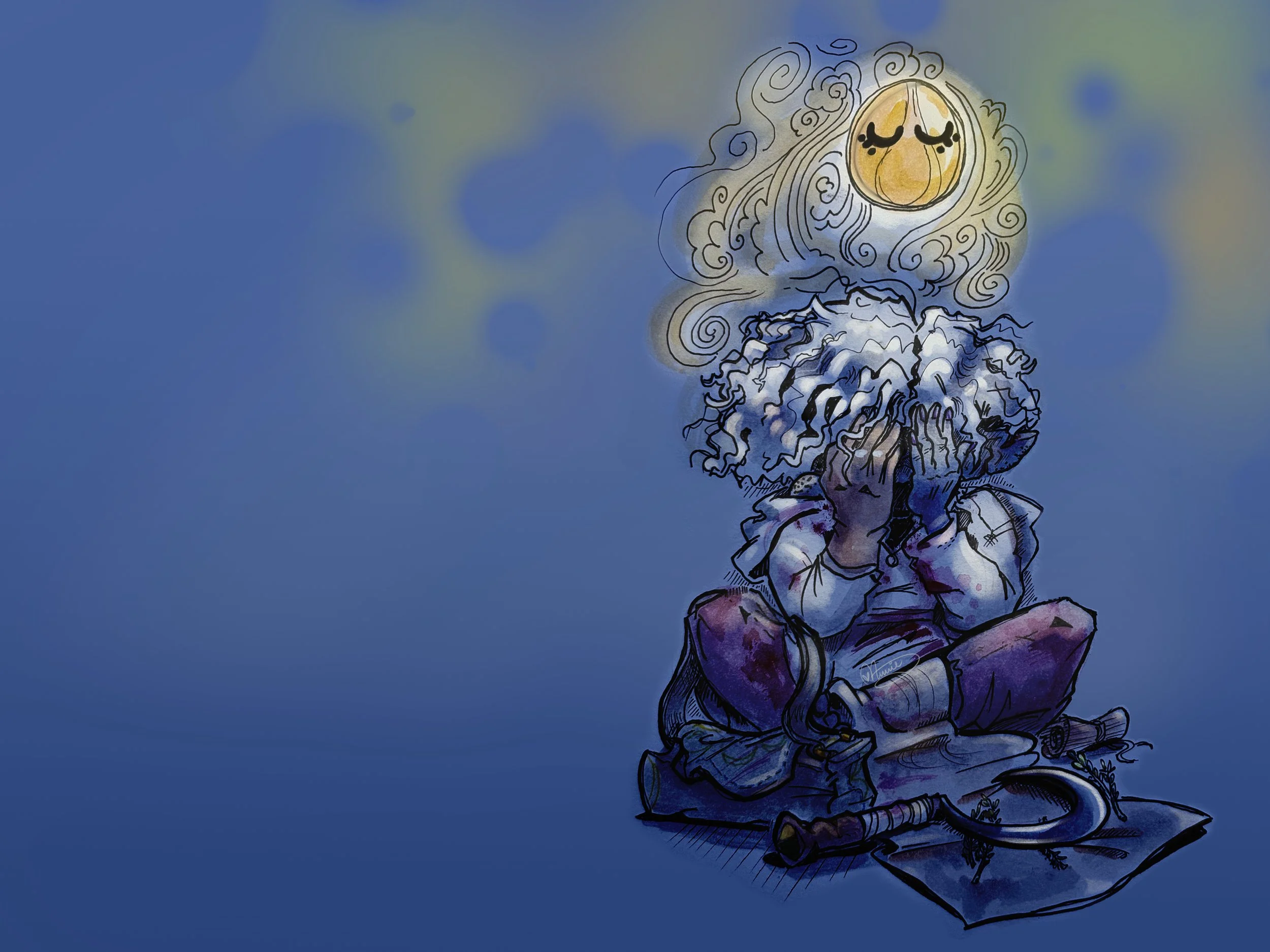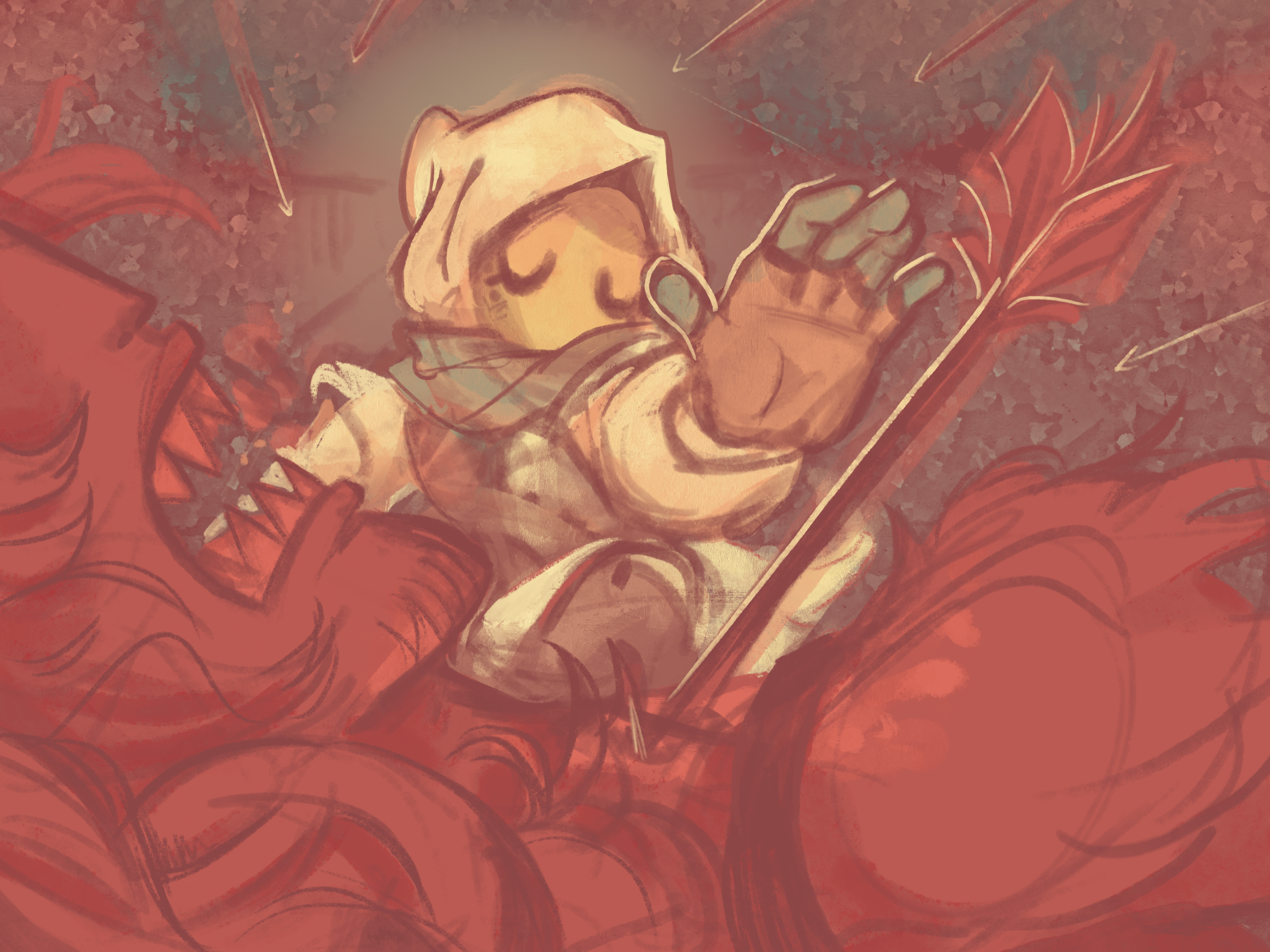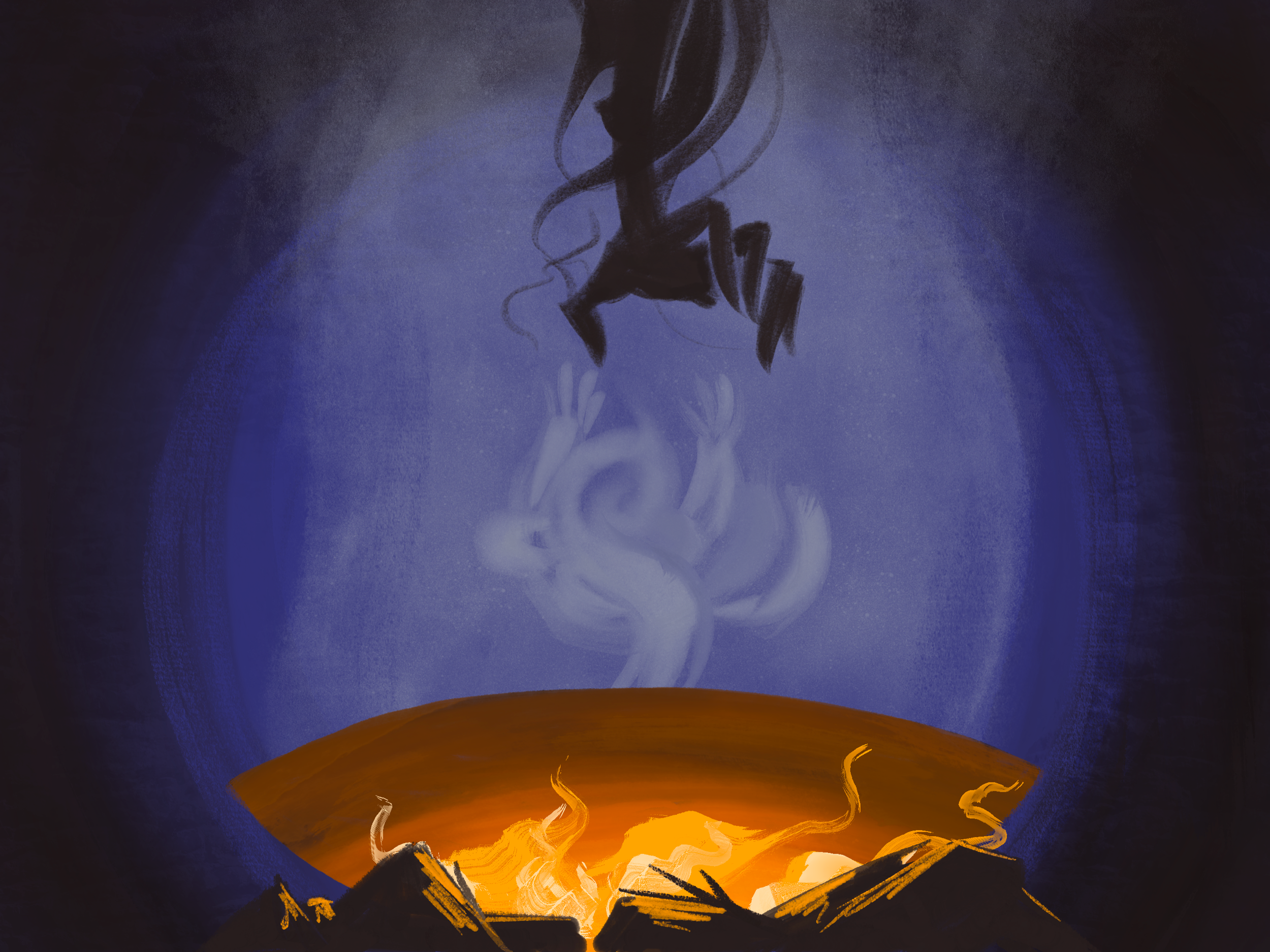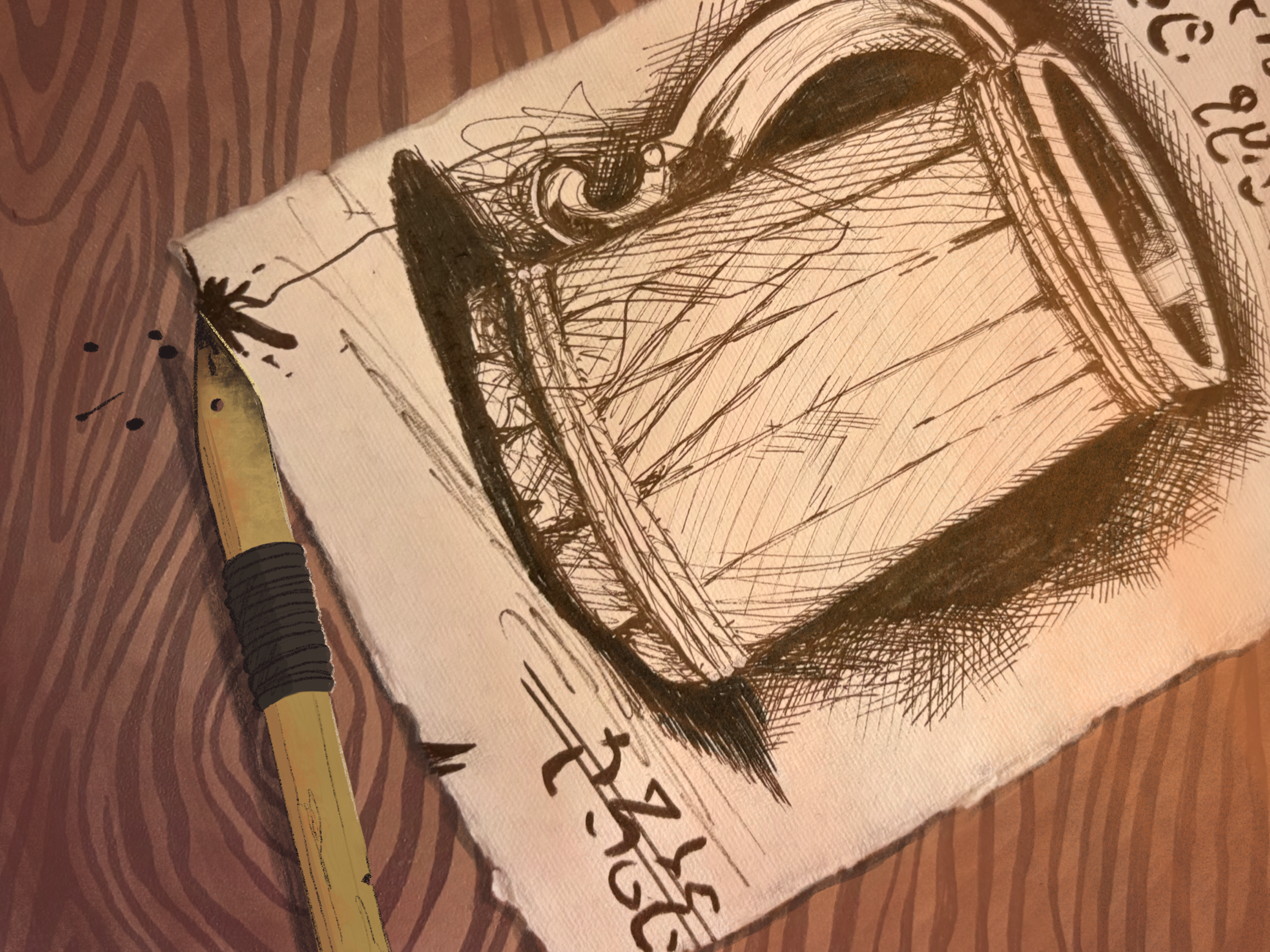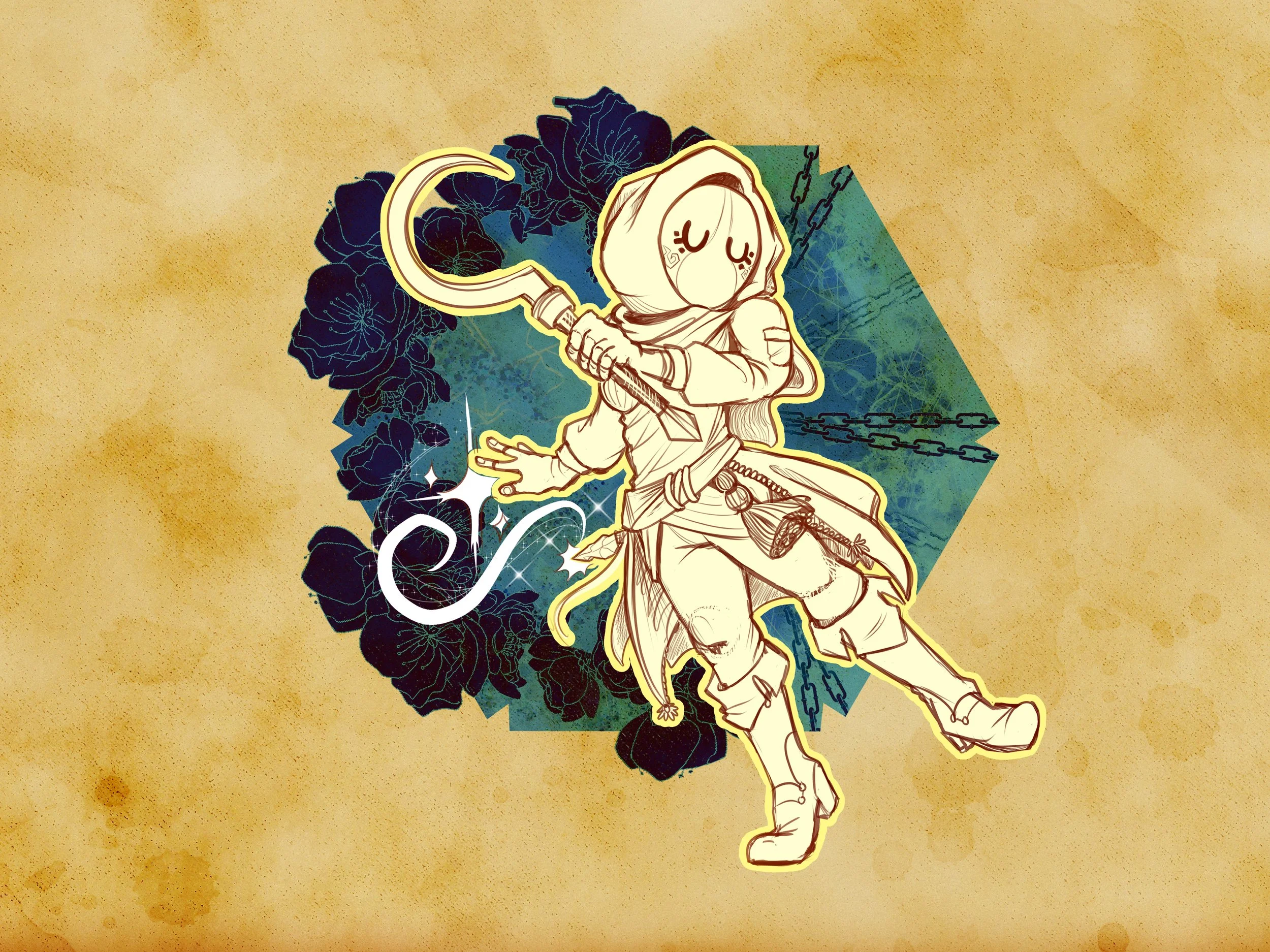Fanesca: Entry Three
Companion analysis has kept me grounded, I feel.
Third Entry
Looking back on that week, months later, I realize most of my early field notes were written during quiet stretches like this—periods when we weren’t working toward a shared goal, but simply living side by side. It’s strange, isn’t it? I learned more about these curious people during their moments of solitude than I ever did watching them in battle. It feels oddly voyeuristic in hindsight, this tendency of mine to observe from the margins like a little ghost in the corner. But I wonder if they noticed. Or even cared. Maybe they just accepted me as the odd, quiet people-watcher I was.
My scribbles in Undercommon, scratched onto scraps of paper and tucked beneath bedrolls or inner pockets, were brief. Imprecise. Hints of something fuller that I never had the guts to put into words. I was terrified of being caught with them, as if writing down anything personal—about them or myself—was a risk. Maybe that fear came from the life I left behind. I never had privacy growing up. Every stray thought was someone else’s property, every word scrutinized, every page of my journal stolen and judged.
So now, every thought I commit to paper feels… sacred. Even the benign ones.
By the time I write this, I’ve long since abandoned those old note-taking habits. For a while, I stopped writing altogether. I let myself exist in the moments, basking in the warmth of the camaraderie we built. But I digress. Here’s a sample of those early observations—those quick, secretive field notes from the week we spent living among the goblins:
Field Notes: Ragar (bugbear rogue)
• Leads without intending to
• Laughter sounds forced (sardonic? mocking?)
• Strike first, talk later
Field Notes: Syldithas (dragonborn fighter)
• Prefers “Jack.” Says it’s “easier.”
• Tallest. Crouches at every doorframe
• Changes certain topics abruptly (track which ones?)
Field Notes: Super (grung monk)
• Likes pickles
• That’s it.
• Frog-shaped agent of chaos
Field Notes: Finnegan (human wizard)
• Loud
• Half-sings when he talks
• Deeply invested in orphan-related issues (trauma?)
Field Notes: Raph’æl (high elf cleric)
• Eats last, sleeps the least
• Conserves magic at all costs
• Eyes betray what his mouth won’t
It was Raph’æl’s little notes I kept glancing back to. There was something about him that tugged at my curiosity more than the others—something that made me want to keep writing, even when I tried not to. He was the first magic practitioner I’d met outside of Them, and yet he was unlike any spellcaster I’d ever imagined. Despite his power, he refused to use it freely. When someone was hurt, it was always bandages. Rest. Medicinal tea. So much medicinal tea. Healing magic, I learned, was a last resort. Not a gift. Not a comfort. A cost. And still, he kept giving. Just not in the way I expected.
Finnegan was the opposite side of the same coin as Raph’æl. Not a man of divine conduit or instinctive spellwork, but someone who clawed his way into magic through sheer academic obsession. His casting wasn’t fluid or quiet like mine, but instead came with the rustling of pages, the careful tracing of runes… it was mesmerizing—an entire performance of preparation. And yet, more often than not, he’d abandon that discipline in favor of cranking out meandering melodies on his “hurdy-gurdy,” his focus drifting to ballads and jokes. What a waste, I thought. But perhaps I just wanted him to take things seriously so I could stop feeling like I’m the only one doing so.
Despite their contrasts, he and Raph’æl were inseparable. Finnegan, bright and bombastic. Raph’æl, quiet and measured. They looked like they’d known each other long before Neverwinter—perhaps long before anything I’ve seen of them. They moved with ease, their rapport unspoken. It made something tighten in my chest. A dull jealousy. That’s what it was, I think. They made connection look so simple, like a story already written and rehearsed. I didn’t even know where to begin mine.
Syldithas—Jack, as he’d rather be called—spent much of the week sparring with Super. Watching them exchange blows, chortles, and the occasional curt warning made me feel strangely shut out. I had hoped Syldithas might eventually test his weapon—the curious, mechanical staff he keeps bundled in leather and never leaves behind. I’ve studied it when he’s looked away. Intricate etchings. Beautiful filigree. A funnel-shaped grip. Not designed for spellcasting, at least not in the traditional sense. I suspect it’s meant for a different kind of channeling. For someone without magic at all. But how does it work? And why keep it hidden? I recall the anticipation eating away at me during those days.
As for Ragar, she spent most of her time trying to tame Clarg’s wolves. The sight of her—hulking, gruff, coaxing snarling creatures into loyalty with scraps of meat and low, rumbling threats—should have been frightening. But it wasn’t. It was oddly domestic. Still, I learned very little from her until the goblins started grumbling about food. That’s when I saw it—something shifted in her. She didn’t complain or delegate. She hovered, barked orders, arranged hunting groups, outlined tasks with blunt precision. It wasn’t leadership in the conventional sense. It was something older. Instinctive. It reminded me less of a captain and more of what I pictured a mother would be when she grew weary of her squabbling brood.
Maybe I got too comfortable too quickly. Or maybe safety—true safety—is still too foreign a sensation for my body to hold onto. But midway through the week, the nightmares I thought I’d finally abandoned had returned. The same ones that haunted me while I crossed the Savage Frontier alone, half-starved, half-mad, convinced that something was following me. That they were following me. That the visions in my sleep weren’t just memories, but messages. Warnings. Chains.
Spitting, hissing whispers.
The ominous chants that served as terrifying lullabies curling around the edges of my mind like smoke.
Hands—so many hands—grabbing my sleeves, clawing at my robes, dragging me back into makeshift altars.
Metal scraping across stone, across wood, against skin—my skin.
Fists pounding on the old ironwood door.
And always, his face: Temenos.
Grinning like the beast he was.
That voice I can never forget, even when I try.
“It’s time for us to unite, My Light…”
I woke up gasping, barely holding back the scream rising in my throat. My bedroll was soaked in sweat. My eyes burned from tears I hadn’t realized I was shedding. But I didn’t wipe them away. I let them fall. There was a shift outside my tent and I laid back down, shielding my face and scars from the opening.
I couldn’t keep living like this.
I couldn’t keep moving through the world hoping—hoping—that they were wrong about me. That I wasn’t chosen. That I wasn’t made for them. I want to believe the power inside me is just… magic. Not a prophecy. Not divine intervention. Not a title carved into my skin and soul.
But belief wasn’t enough. I needed proof.
And from where we stood, there was only one place I could turn to that might give it to me. One name. One of the many names I’ve cursed under my breath more times than I can count.
Tymora.
The name tasted bitter. But I knew, even then, I’d be paying her a visit.
———
I waited until the last stretch of night to make my departure, when the others were still sound asleep and the cave lay draped in that strange silence that follows late-night busyness. I left a small note tucked into the folds of my tent flap, just in case they noticed my absence before I returned. I doubt they would have worried, but I had come to learn that courtesy costs nothing and earns everything.
The trek to Phandalin felt longer this time, my steps weighed down by more than distance. By the time I arrived, the sun had climbed halfway across the sky, painting the town in soft golden hues that made everything feel deceptively serene. I paused at the outskirts, muttered a few words under my breath, and let the magic flow through my fingers. Prestidigitation—the first spell I ever cast with conscious intent, and by far the most practical. A swipe here, a flick there: no more dust, no more sweat, no lingering smell of the road. My robes looked freshly pressed, my skin unblemished. The illusion of composure. A shield, like my mask.
I still haven’t had to disrobe in front of anyone. A small, irrational victory I cling to.
Around the center square was the same bustle I remembered from our first arrival, though the rhythm of it all felt a bit… off. There were more murmurs than before, more glances passed between neighbors. I’m not one to eavesdrop without purpose, but a few words drifted close enough to stitch together a thread of gossip.
Something about masked figures.
Not attackers—healers, supposedly. A pair of them, moving quietly through the town in the dead of night, offering healing to those in need and vanishing before dawn. It struck me as both philanthropic and profoundly unnerving. Their presence didn’t sound malicious, but anonymity breeds unease, and the fact that no one had caught a full glimpse of them only fed the speculation. Perhaps, I thought then, it was something for us to look into once Gundren was back safe and sound.
The Shrine of Luck was not empty this time. Inside was the figure of one I’d come to know quite well someday.
Sister Garaele.
She stood at the altar arranging offerings, platinum blonde hair glinting in dappled sunlight, a look of serenity that felt permanent. Gods, who am I to even be here. I almost turned around—nearly convinced myself to come back later, or not at all. But then she met my gaze, and smiled at me with a warmth I didn’t know how to shield against.
Before I could even open my mouth, she said, “Oh. You’ve been touched by radiant divinity.”
It hit me like a slap.
Radiance. Divinity. The very words They used.
I nearly left then and there. My feet itched to retreat, my breath caught in my throat, but her expression wasn’t reverent or worshipful or afraid. It was kind. Not of the patronizing sort. Not the kind that says “I know what you are.” It felt like she saw me, not what they claimed I was.
And so… I stayed.
I told myself it was to investigate. To ask questions. To learn. Not to prove her wrong—certainly not to confirm anything. Just… to understand.
If the gods had nothing of length to do with me, surely this chosen servant would recognize that. Right?
Right?

